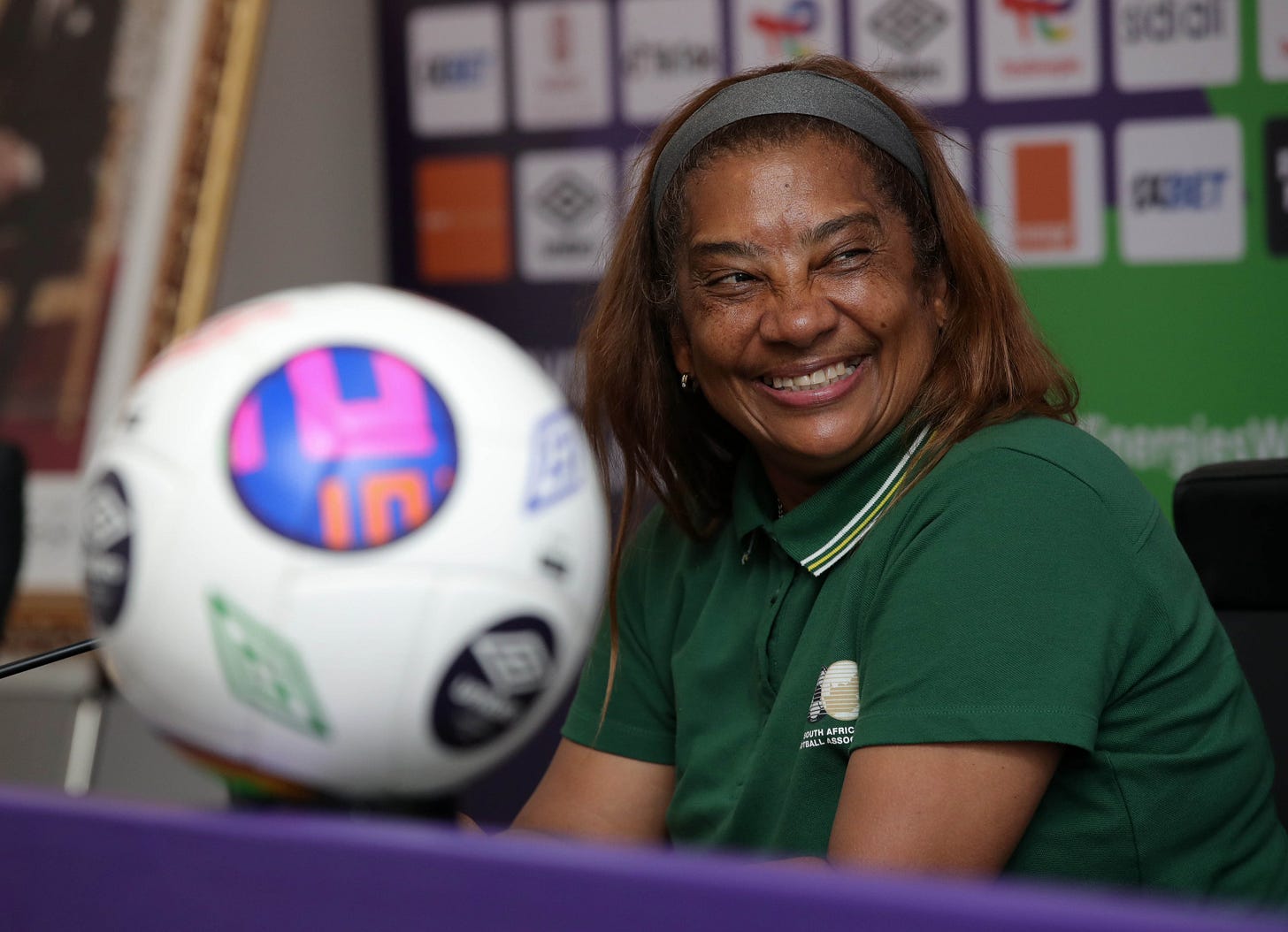The Big Interview: Desiree Ellis
As she prepares for a second World Cup, the South Africa head coach reflects on the progress the nation has made, winning AFCON last year for the first time and her own personal journey.

South Africa head coach Desiree Ellis is sat at her desk just after her provisional squad for next month’s World Cup has met up to start preparations for the tournament.
Ellis, 60 – and a legend of the game in her home country, has only been with her squad for a few days as a second consecutive World Cup for Banyana Banyana grows ever closer, and she admits there is a mixture of emotions among the squad given some won’t make the final squad of 23 for the tournament.
“I think everyone’s very excited to be back in camp, but also anxious because of selection,” says Ellis, who has been head coach since 2016. “That’s always the toughest time and always the toughest decisions you have to make as a coach. I think this time around it’s a lot harder than it was in the past. Our domestic league isn’t where we want it to be but it’s gotten better, the players have gotten better and from the thousands out there it was difficult to get the preliminary squad together.
“Now to take that 36 and cut it to 23 is just as difficult. You can see the nervousness in the players, but I just try to remind them they’re here because they’re good players. Unfortunately, I can’t take all of them, but that doesn’t mean they’re bad players. The ones we haven’t selected are good players as well, but we have to select who fits into how we will play, and also versatility because anything can happen and you need two or three players in every position.
“We’re just trying to remain calm, keep the players focused. The energy is good, the attitude is good and it’s always very competitive. Everybody is pushing everybody else, it’s tough and it will be tough, but somebody has to do it!”
The nation’s rise under Ellis has been remarkable. In 2016, they had just participated in a second consecutive Olympic Games, but had never reached a World Cup and had never won the Africa Cup of Nations.
Check out over 100 more unique stories in WFC’s Premium section, available for just £45 for 12 months, paid in one go, or a £6 a month rolling subscription.
All subscriptions come with a 7-day free trial to allow you to explore our full archive.
Plus, guarantee you everything that is to come over the next 12 months…
Now, seven years on, they have qualified for both the 2019 and 2023 editions of FIFA’s showpiece event, and brought home major silverware after finally getting their hands on the AFCON trophy last year, having lost all five of their previous finals on the continent.
In 2019, South Africa were drawn into a brutal group alongside China, Spain and Germany and as World Cup debutants were given little chance of progression. They left France with no wins, no points and a solitary goal, but performed admirably, leading for large parts against Spain until giving away two penalties and only fell 1-0 to former world champions China.
When I ask if the feeling is different for her and her squad this time around, Ellis admits there is still the anticipation that comes with the build up to a major event.
“But maybe the feeling for some is different,” she says. “I think in 2019 we knew what to expect, but also didn’t know what to expect. I can tell people it’s going to be this and this, but until you experience it, it’s hard to imagine. We have that little bit of experience now to help us do things differently.”
Part of planning for the demands that come with a major tournament has been playing top nations, with Banyana Banyana facing the likes of Netherlands, Brazil and co-hosts Australia across the last 12 months, to prepare for a group which has seen them draw Sweden – who finished third in 2019 – as well as Italy and Argentina.
“We played top teams to get into shape. Since then we have played a couple of countries to test ourselves, but also to put our game model in place. In the past maybe we couldn’t do it against the top teams because all we were trying to do was close the gaps.
Keep reading with a 7-day free trial
Subscribe to Women's Football Chronicles to keep reading this post and get 7 days of free access to the full post archives.
